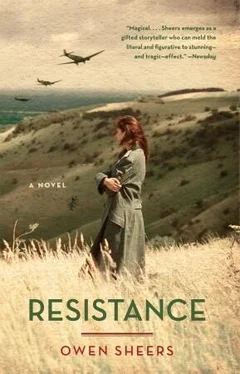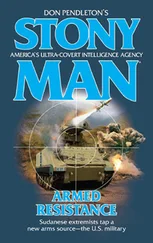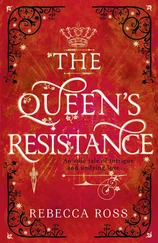George lay on his stomach at the edge of the coppice, the morning sun filtering through the leaves above him, warming his back and neck in patches that shifted with the breeze. The rifle case lay beside him. It still smelt of the manure heap, years-old animal shit impacted in the grooves around the two steel latches. He looked through the telescopic sight at the farmhouse below, moving the unsteady crosshairs slowly over its roof, across the yard and back again. He hoped this was the right farm. Watkins had already had a skinful by the time he’d got to him yesterday, celebrating his wins in two different classes. Then George had had to buy him another beer to keep him talking, so when Watkins finally told him where to find Maggie Jones’s place, he’d barely been able to understand him. This farm below, though, it looked like the right one. It was certainly in the right part of the valley and there were no others near it. He just had to wait, that was all.
The show had come as a welcome distraction for George. Over the past months his life had, within the confines of the occupation, reverted almost entirely to its prewar familiarity of farmwork and boredom. He was no longer an active member of the Auxiliary Units Special Duties Section. He was just his father’s son again, a local farm boy, twenty-one years old but looking seventeen. To make it worse he was also increasingly the butt of the odd angry aside or bitter joke. After all, what had he ever done? Wriggled his way out of conscription then never even joined the Home Guard. No girl would look at him. He’d done nothing in the face of the war other than work on the farm, that’s what they thought. Nothing. And yet George knew he would have given everything. He’d followed Atkins’s orders to the letter. For months after the German troops arrived he’d regularly visited the agreed fallback position of an old barn on a hill two miles from his home. This, Atkins had decided, would be where he and the others would meet should the network of messages be disrupted. George never knew who these others were. He didn’t need to and it was safer not to, that had been Atkins’s line. And he still didn’t. Despite his frequent visits he’d never found anyone or anything at the barn, other than bats in its eaves and, once, a sick ewe sheltering from the rain.
In the meantime he’d had to live and work under the eyes of the occupation troops while also witnessing a general slide towards mass collaboration. It seemed impossible for people not to. They had to eat, after all, and they had to earn money. The Germans, meanwhile, controlled the food supplies, handed out the ration tickets, and were the only ones with cash to spend. George had seen them walking through the streets of Abergavenny, cruising the local shops, jingling the loose change in their pockets. He’d watched the shopkeepers attend to them, eager-eyed and keen. He’d even seen his own sister laugh as she served a group of young recruits, joking with them over their bad English. “They’re no different from you,” she’d said when he’d told her she shouldn’t behave like that. “If we’d won, our boys,” (she didn’t say him , he noticed) “would be over there doin’ the same. They’re harmless, George, these ones. Just children really.”
But the Germans were not harmless, everyone knew that. London was a shell of a city. Gutted, starved, shattered, more of a ruin than a capital. St. Paul’s, the Palace of Westminster, the Royal Albert Hall, Westminster Cathedral, even Buckingham Palace. None of London’s landmarks had escaped the bombing and shelling of that long winter siege. Its population had halved, scattered or killed. Elsewhere tens of thousands of men of fighting age had already been deported. The German propaganda machine and William Joyce’s BBC were calling these deportations Britain’s contribution to “the rebuilding of a new United Europe,” but everyone knew it wasn’t as simple as that. And everyone knew about the Jews as well. Many escaped to Canada in those first chaotic weeks after the invasion, but now, under the veil of order, administration, and bureaucracy, the Nazis were paring the nation of any remaining Jewish families, assigning them for “resettlement” in the occupied Eastern territories.
Closer to home there had been waves of reprisals in response to the insurgency. George had heard of entire villages outside Hereford that now lay empty. Neat rows of pockmark bullet holes in the walls of village halls and churches were the only reminders of what had happened there. No, the Germans were not harmless.
There was, however, also hope. Not within the official channels of proclamations, speeches, and wireless reports, but in the unofficial currents of rumour, in quiet asides in country pubs before closing time; there you could hear the occasional whispers of an alternative future. These might be nothing more than reports of antifascist graffiti in the towns, painted over before most saw it, or old songs overheard in the street given new, antioccupation lyrics. Nothing more than seeds of discontent. But even these, George had to believe, could be enough. Alternative news also filtered in from abroad. American volunteers, many of them Jewish, were flocking over the border into Canada. The Canadian and Free British governments were mobilising an army of liberation. There were plans for an assault along Britain’s western coastline, and even talk of commando landings already here in Scotland and Cumbria. Everyone knew, meanwhile, that the German occupation forces were being weakened by the month. The Russian breakout from behind the Urals was draining the Wehrmacht in Britain of its most experienced and best regiments. Faced with a choice, it was thought Hitler would rather let Britain go than allow the communists to edge any closer from the east. George had even listened to the opinions of some who thought America could be convinced to reenter the war in Europe. They were still fighting with Japan, but if a Canadian and Free British assault could gain a foothold, then a shift in public opinion could well force the U.S. administration’s hand.
Such threads of hope were fragile, however, and the ache for peace, the desire for anything other than war, was growing stronger. The British administration in Harrogate had given its support to regional commissioners who were now actively assisting the Germans in locating and destroying any remaining insurgency cells. The Herefordshire Gestapo office had, George knew, been receiving a steady trickle of anonymous tip-offs about suspected insurgent activity. And hadn’t he, George Bowen, already reneged on his duties? Not those given to him by Atkins, to whom he felt he’d been nothing but faithful, but the duties he’d accepted from the other man who’d visited him that summer four years ago. The other man from British Intelligence, who had brought him the rifle he held against his shoulder now, lying at the edge of a coppice, the morning sun warming his back and his neck.
The man had never told George his name, never even gave himself a sobriquet like “Tommy Atkins,” so George had always thought of him simply as “the man”; dark hair, short, stocky, with stern, serious features and a neat moustache. He’d first approached George in 1940, two weeks after Atkins had strolled across that field, the fishing flies on his hat winking in the sun. George was driving the new Ministry-issue tractor down the lane, taking a pile of hurdles and pallets from the top field to the yard. The man had been leaning against a gatepost so George had only seen him when he stepped out from the hedge and flagged him down.
The next time they met was in the wood beside the same old barn Atkins had chosen as the fallback position for their communications cell. It was in that wood that the man had told George what he wanted him to do.
Читать дальше












